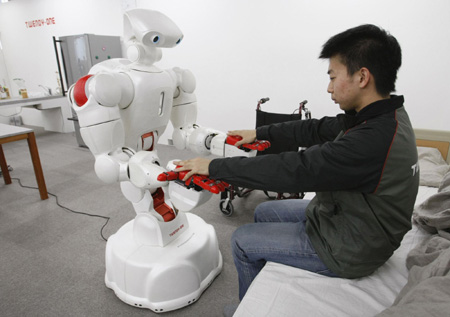Gadget gear-up prompts plea for pledge
 Researchers have called for more state government funding after successful trials of high-tech helpers for the elderly and disabled.
Researchers have called for more state government funding after successful trials of high-tech helpers for the elderly and disabled.
The Flinders University conducted a trial at nursing homes in Adelaide to see how feasible and viable it would be for homes to be retrofitted with readily-available technologies to make life easier.
The South Australian State Government-funded Retrofitted Electronic Aids project sought to find out how many useful gadgets could be installed in a home for $10,000. One home, belonging to a patient with multiple sclerosis was outfitted with various electronic devices to assist in answering the door, using a mobile phone, turning on the television and accessing the internet.
Using technology to ease the shortage of healthcare workers who can visit homes could help save money and free up services for many small and large-scale care facilities around the country.
Flinders University researcher Professor Karen Reynolds says the readily-available gadgets could greatly reduce the dependence of people with special needs on carers.
“As people get older they want to be able to stay where they've been living, stay where their friends are,” Prof Reynolds said, “their family might be living round the corner but they want to be able to say in their own home and not move into another location.”
It is unclear at this point whether further funding will be pledged. Technology is certainly gaining an ever-increasing presence in the services industry; in the future some speculate that caring for the elderly and disabled will be one of the first successful tasks for humanoid robots.








 Print
Print